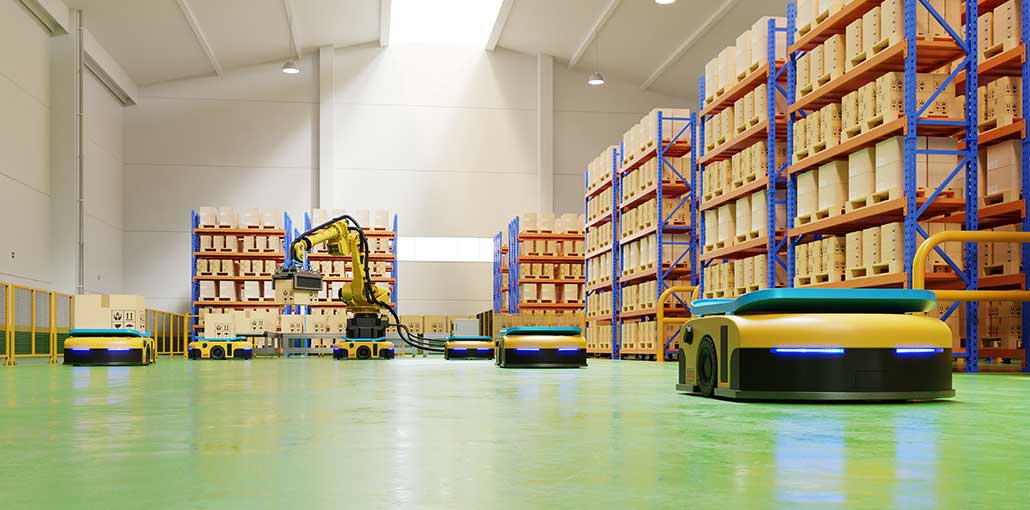Industries that used to hire workers to do the manual job manufacturing products have had to adapt and evolve. This has led to smart warehouses being built, which are reinventing how these facilities work. Employees are still important in this change. Industries have just changed the daily tasks of these workers and put them to better use in the smart warehouse technology.
This allows employees to work in tandem with smart warehouse technology, creating a highly productive supply chain and saving both time and money. This article will discuss the various technologies that industries can use in smart warehouses and the benefits for all parties.
Smart Warehouse: What is this and its benefit
Many industries are now leveraging automation, and this technology can be used in warehouses. Smart warehouses are becoming more attractive to those industries that work against the odds.
Answering the question “What is an automated Warehouse?” can be described as a warehouse that uses technology to do the traditional work and manufacturing processes required by a company. These smart facilities, unlike dated warehouses, can reduce errors, improve workflow and overall building management, manage heavy inventory and keep track of when it was delivered, lost, or built. They also increase sustainability and reduce pollution.
Also read: 13 Types of Supply Chain Management Tools
Smart warehouses are becoming more popular in sustainability. They no longer have to produce products in anticipation of customers purchasing them. Instead, they can only produce inventory when the consumer actually purchases the product. This will reduce uncertainty and unnecessary manufacturing, which will save companies’ budgets as well as save material that could be thrown away if they are not used. AI in digital browsing will only grow over time.
Smart Warehouse Technologies
Companies who want to use smart warehouses must understand the different types of smart warehouse technology before making the decision about where to produce their products. Which devices are most beneficial to the company’s overall production will depend on their industry and the products they sell. Below is a list of 9 technologies you will find in smart warehouses.
1. Management System
It is essential to have a smart management program to monitor all technology within the perimeter before any manufacturing can take place in a warehouse. This system can be used to oversee the facility. The list below highlights another possible benefit.
- Access to detailed data quickly for a better understanding and control of machinery and supply chains
- labor costs
- A well-organized warehouse system
- More accurate inventory checks
- Customers receive more information about their products and better customer service.
- This is a highly responsible way to manage the warehouse
2. Automated Picking Tools
Picking tools used to be a tedious task in warehouses. But now it is easy to automate this process. This tool can do the job better than workers in the past who had to go through every product to find the best one to offer consumers. The automated picking tools can pick almost perfect products by quickly analyzing the items. This reduces any human error.
3. Inventory Control Platforms
The 2018 new automated inventory control platforms can log, track, count, monitor, and report on all warehouse inventory. This platform can accurately track all warehouse inventory, regardless of whether products are being removed from the facility, discarded by error, or produced quickly.
4. Automated Guided Vehicles
Automated guided vehicles make it easier for employees to do the often daunting job of moving, loading and taking inventory out. These vehicles can transport large warehouse inventory pieces and carts with forklifts or carts.
5. Industrial IoT
The IoT (Internet of Things) is responsible for overseeing all technology in smart warehouses. This is where all data and technical information travels. The IoT is capable of detecting any errors in smart warehouses and preventing them from happening. This technology can monitor everything from temperature and moisture in warehouses to shipping and product mishaps.
6. Collaborative Robots
This technology works in concert with workers to ensure that the supply chain moves smoothly and quickly. One of the best things about collaborative robots is that they don’t take jobs from employees. They are there to help workers and improve warehouse productivity.
Also read: 4 Tips to Improve Your Packaging Process
7. Smart Sustainability
In recent years, sustainability has been a top priority for many industries. Warehouses can now reduce their energy consumption and produce less waste with technology thanks to data retrieval. Smart warehouses will not only do their part to save the planet, but they can also help industries conserve energy and product material.
8. Handheld Technology
While workers are still an important part of smart warehouses, employees now use handheld technology to assist with mundane tasks. Workers use handheld technology to scan barcodes and count inventory. This allows employees to keep track of inventory and reduces the chance of making mistakes.
9. Labeling Technology
Packages that are incorrectly labeled can lead to high costs for companies. Stock can get lost or misplaced if the labels are incorrect. However, with labeling technology workers can optimize these devices to correct labeling even if consumers change their addresses after they have purchased.
Smart warehouses will soon have access to most, if not all, of these devices in order to provide a superior method of manufacturing. Businesses should continue to focus on the facilities that best meet their inventory requirements.
Conclusion
Automated warehouse technology can be beneficial for many industries. These devices can increase production and efficiency, detect and correct errors, keep track of inventory, reduce costs, and lower pollution.










Leave a comment